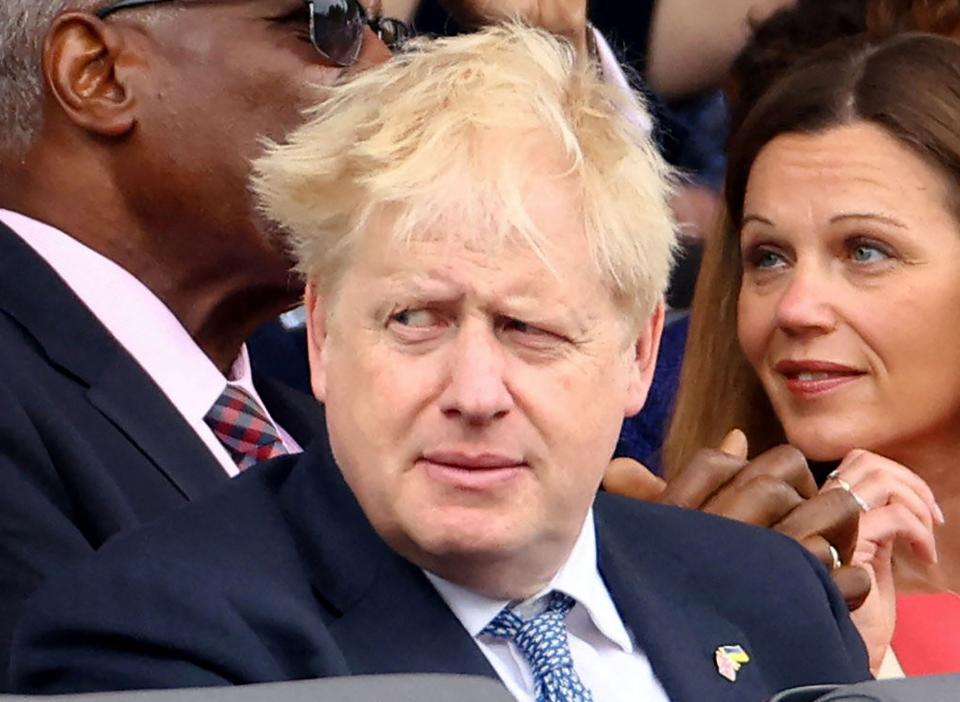UK Prime Minister Boris Johnson survives a no-confidence vote despite backlash over COVID-19 'partygate'
- Oops!Something went wrong.Please try again later.
LONDON – Britain's Prime Minister Boris Johnson survived a no-confidence vote Monday called by rebel lawmakers from his ruling Conservative party who wanted to oust him as leader, in part over allegations of drunken government parties held during COVID-19 lockdowns.
Johnson’s critics failed to oust him in a 211-to-148 simple majority vote, a victory that means he can't be challenged by his party for at least another year. However, the fact that the secret-ballot vote happened at all leaves him politically wounded. Johnson's predecessor, Theresa May, survived a no-confidence vote in 2018 but resigned six months later.
Johnson faired worse in Monday's vote than May did four years ago.
The vote was called by Conservative lawmakers concerned over a collapse in Johnson's poll ratings following revelations of parties in Downing Street and other government buildings during coronavirus lockdowns. Some Conservative lawmakers have found it difficult to defend.

Explainer: What we know about Boris Johnson and Britain's 'partygate' scandal
Britain's Prime Minister Boris Johnson is like Trump. Only he isn't.
See all the photos: Platinum Jubilee celebrates Queen Elizabeth II's 70-year reign
Late last month, an investigator’s report on what has become known as "partygate" slammed a culture of alcohol-fueled parties and rule-breaking inside Johnson's No. 10 Downing St. office at a time when pandemic restrictions prevented U.K. residents from socializing or even visiting dying relatives.
A growing number of Conservatives feel that Johnson – the charismatic if gaffe-prone leader who won them a huge parliamentary majority in 2019 – is now a liability. Some 60% of the British public would like him removed from office, according to YouGov, a polling and research firm.
All 359 Conservative lawmakers took part in Monday's vote and the 148 who voted against Johnson – 40% – was also a worse showing than a 1995 no-confidence vote against then-British Minister John Major.
When Johnson succeeded May as Britain's leader he led the Conservatives to their biggest general election win since former Prime Minister Margaret Thatcher in 1987.
In brief remarks, Johnson called the vote "decisive" and a "very good result overall" and said "what we need to do now is come together as a government and a party."
Johnson's allies, too, attempted to describe the result as positive for the prime minister, with Nadhim Zahawi, the education secretary, claiming Johnson had won the vote "handsomely." But Sir Keir Starmer of the main opposition Labour Party characterized the outcome as amounting to a "divided" Conservative party "propping up" Johnson.
Polls predict that Johnson's Conservatives are likely to lose two upcoming elections for parliamentary seats vacated by lawmakers who resigned.
This article originally appeared on USA TODAY: Boris Johnson survives no-confidence vote over COVID-19 'partygate'

